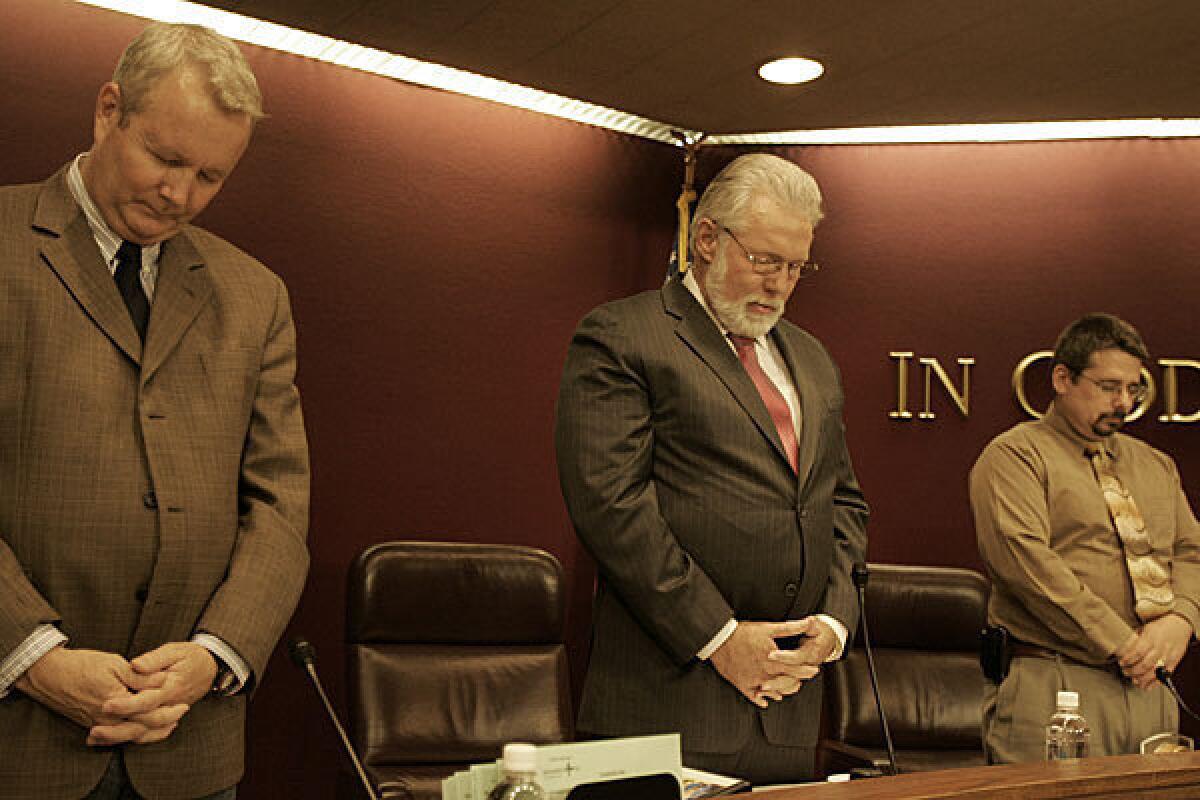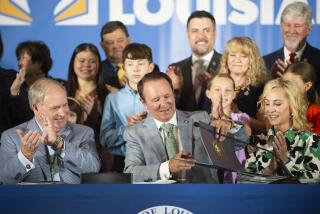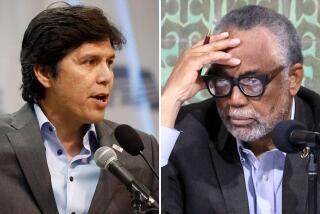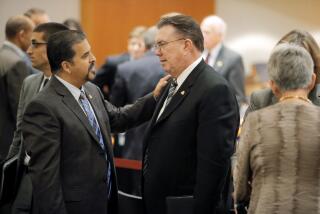Lancaster City Council prayers again ruled constitutional

Since the Lancaster City Council began opening its meetings with a prayer from local religious leaders, people have become more tolerant of unfamiliar beliefs, according to Mayor Rex Parris.
The invocations have come from Muslims, Sikhs and Wiccans as well as from Christians. Parris says the exposure has had a “unifying effect,” with people in the High Desert city no longer flinching at mentions of Allah.
But to Shelley Rubin and Maureen Feller, a prayer at an April 2010 council meeting crossed the line, amounting to a government endorsement of Christianity.
“Bring our minds to know you and in the precious, holy and righteous and matchless name of Jesus I pray this prayer,” said Henry Hearns, senior pastor at Living Stone Cathedral of Worship and a former mayor of the city, according to court documents.
The two women sued, enlisting Roger Jon Diamond, known for representing strip clubs in 1st Amendment cases, as their attorney.
On Tuesday, a three-judge panel of the U.S. 9th Circuit Court of Appeals affirmed a lower court decision, ruling that the prayers were constitutional because the city had invited people of all faiths to lead them.
Sectarian prayers are not prohibited at government meetings, the court said, and the city has not endorsed one religion over another, even though a majority of the prayers are Christian. Eliminating the word “Jesus” would not work as a practical matter, since the city would have to edit every prayer for similar references, the court said.
“Jesus is not a dirty word,” said Parris, a Baptist. “Really what this lawsuit was about was making it one.”
The case law for prayer at government meetings is somewhat unsettled and is considered separate from school prayer cases, where students are a more vulnerable and captive audience than adults in city council chambers.
Diamond plans to appeal to the U.S. Supreme Court after seeking a rehearing with the 9th Circuit.
The decision does not square with those from other circuit courts, which could prompt the Supreme Court to jump in, said Peter Eliasberg, legal director of the American Civil Liberties Union of Southern California.
Aaron Caplan, who teaches constitutional law at Loyola Law School in Los Angeles, agreed that the justices might take the case, or a similar case, if they want to make a uniform national rule.
“That said, they might not be in the mood for controversy. They might be controversied out for the next few years,” Caplan said, referring to this week’s gay marriage cases and other closely watched issues on the docket this term.
Rubin is the widow of longtime Jewish Defense League Chairman Irv Rubin, whom Diamond represented in a similar lawsuit against Burbank. She lives in Arcadia and came to the 2010 council meeting after Lancaster voters approved a ballot measure endorsing the prayers. Feller is a Christian who lives in Lancaster.
“It’s offensive, and it makes you feel like an outsider,” Diamond said. “If it’s that important to do this prayer, there’s nothing that prevents them from having a private session before the meeting.”
More to Read
Sign up for Essential California
The most important California stories and recommendations in your inbox every morning.
You may occasionally receive promotional content from the Los Angeles Times.











